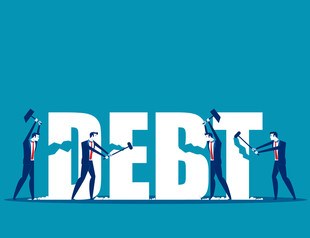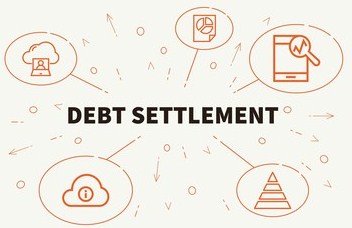Debt settlement can offer some important advantages if you are struggling to repay your debts. With that, you can negotiate with your creditors to pay off your debt for less than the full amount that you owe. This can help you to get out of debt faster and save money on interest and other fees. It can also help to improve your credit rating over time. If you are considering debt settlement, it is important to understand the process and the potential advantages and disadvantages before you make a decision.
One of the main advantages of debt settlement is that it can help you to save money. If you can settle your debts for less than the full amount that you owe, you will end up paying less in total. This 
Another advantage is that it can provide relief from creditor harassment. If you are struggling to repay your debts, you may be subjected to collection calls and other forms of harassment from your creditors. Debt settlement can help to stop this harassment by negotiating with your creditors on your behalf.
The third advantage is that it can help you to improve your credit rating over time. When you settle your debts for less than the full amount, this will be reported to the credit bureaus.
There are also some potential disadvantages of debt settlement that you should be aware of. One potential downside is that it could negatively impact your credit score. If you default on a debt settlement agreement, this will be reported to the credit bureaus and could lead to a decrease in your credit score. Another potential downside is that it can be costly. You may have to pay fees to the debt settlement company as well as any taxes that may be due on the forgiven debt. Finally, It may not be an option if you have a high amount of debt or if your creditors are unwilling to negotiate.
Basics of Debt Settlements
Debt settlement can be a good option if you’re unable to make your minimum payments, or if you’re facing foreclosure. It can also help improve your credit score over time. To get started, you’ll need to contact your creditors and explain your financial situation. Once you’ve reached an agreement, you’ll typically make one lump-sum payment to the creditor, and then the debt will be considered settled. Keep in mind that it can have some negative consequences, such as damaging your credit score or increasing the amount of taxes you owe. If you’re considering this option, it’s important to speak with a financial advisor first.
According to a recent study, the average American has about $38,000 in debt. Debt settlement can be a good option if you’re unable to make your minimum payments or if you’re facing foreclosure. It can also help improve your credit score over time.
Debt Settlement Cases
The average credit card debt in America is $15,654. This number is shocking, and it’s only increasing. If you’re one of the many Americans struggling with credit card debt, you might be considering a debt settlement. Debt settlement is when you negotiate with your creditors to pay off your debt for less than what you owe.
Debt settlement is an agreement between you and your creditors to pay off your debt for less than the full amount owed.
For example, let’s say you owe $20,000 on your credit card. Through negotiation with your creditors, you agree to settle the debt for $15,000. You would then make one lump sum payment of $15,000 to pay off the debt.
Debt settlement can be a good option if you are unable to repay your full debt amount and are facing financial hardship. It is important to note that with debt settlement, there is the potential for negative impacts on your credit score.
Debt Settlement Offers
There are several things to consider before entering into debt settlement negotiations with your creditors. First, you need to determine whether you can afford the lump sum payment required to settle the debt. If not, you may end up defaulting on the settlement agreement, which will damage your credit score even further. Second, you need to be aware of the potential tax implications of debt settlement.
Debt forgiveness is considered taxable income by the IRS, so you may end up owing taxes on the forgiven debt. Finally, you need to make sure that you are comfortable with the idea of not paying your full outstanding balance. Remember that creditors are under no obligation to agree to settle your debt for less than what is owed, so you may end up in a worse position if they refuse to negotiate.
When you’re trying to negotiate with your creditors, one of the tools you have at your disposal is the debt settlement offer. This is where you offer to pay a lump sum that’s less than what you owe to settle the debt once and for all.
Let Encompass Recovery Group Help You Take Control
Debt can be a very tricky thing to deal with. If you’re not careful, it can easily get out of control and become a huge burden. This is why it’s important to be aware of some key debt settlement tips that can help you get the most out of your negotiations and avoid any costly mistakes.
The debt settlement departments are responsible for negotiating and settling debts with creditors on behalf of the debtor. The department works to reach an agreement with the creditor that is acceptable to both parties and that results in a reduced debt balance for the debtor. In some cases, the department may also be able to negotiate a lower interest rate or monthly payment amount for the debtor.
With a lower interest rate and payment, debt consolidation can be manageable for the borrower. All of the accounts will be closed allowing more money to be applied toward the principal rather than toward fees and interest. With Encompass Recovery Group’s experience, we will be able to successfully negotiate a low monthly payment that you can afford.



